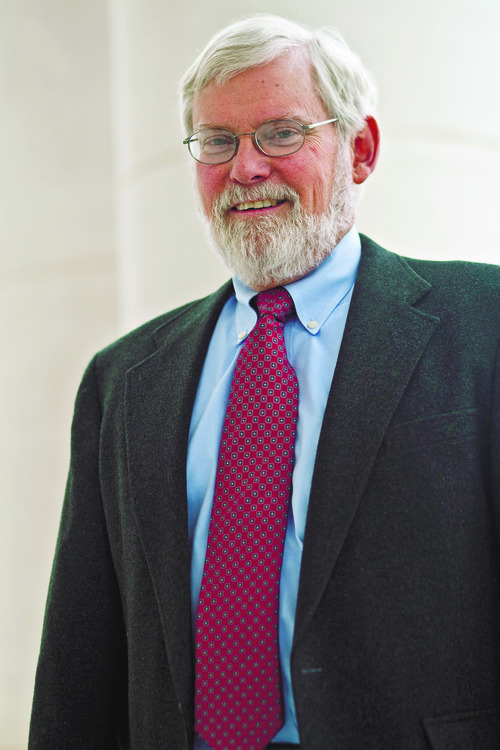This is an archived article that was published on sltrib.com in 2013, and information in the article may be outdated. It is provided only for personal research purposes and may not be reprinted.
Salary sweeteners designed to keep David Pershing in the University of Utah president's chair pushed his compensation to 44th in the country last year, a jump for the U. in a national ranking of public institutions released by the Chronicle of Higher Education on Monday.
Pershing's compensation totaled just over $624,000 in fiscal 2012, but he didn't receive it all immediately. Instead, he'll get $175,000 of that total paid from an endowment five years into his tenure, said Cathy Anderson, associate vice president for budget and planning.
"The theory, not just for presidents but for any deferred compensation … is that it incentivizes them to stay and carry out the strategic plan," she said. "We have to be competitive with our peers in the Pac-12."
The median compensation for presidents at U.S. public colleges and universities rose by 4.7 percent in 2011-12 to about $441,000, according to the Chronicle analysis of 191 institutions.
Salaries of past U. presidents, Bernard Machen and Michael Young, have increased substantially since they left the school. Machen is now the ninth highest-paid president in the country, making a total of more than $834,000 at the University of Florida, while Young got $768,000 last year at the University of Washington, according to the Chronicle.
It's not just the U. — Michael Benson more than doubled his salary to $400,000 when he left Southern Utah University for Eastern Kentucky this year.
"I think the idea is [U. trustees] want to have someone who stays there and wants to stay," said Pam Silberman, spokeswoman for the Utah System of Higher Education. Pershing, a chemical engineer who has been at the school since the late 1970s, was promoted from vice president of academic affairs to U. president in January 2012.
But his $348,400 base salary is far from the highest at the U. Ute football coach Kyle Whittingham takes those honors, making about $2 million last year, according to state public records.
The only other Utah school included in the Chronicle's ranking, Utah State University, dropped in the ranking from 73rd to 76th place during the past fiscal year, which ran from June 2011 to July 2012. USU President Stan Albrecht's total compensation was about $498,000, according to the Chronicle. His paycheck also falls behind basketball coach Stewart Morrill and the school's athletic director, according to public records.
Presidential salaries are generally low in Utah, Silberman said. The Utah Board of Regents tried to boost presidential salaries by up to 12.5 percent in 2011 but changed their minds after the governor protested.
The regents approved a 1 percent raise for college presidents last year, with Weber State and SUU getting larger boosts — an increase that came after years of tuition hikes for students.
But low Utah salaries scare off talented job candidates, according to U. board of trustees Chairman Clark Ivory, who said he would like to see the school continue to increase its offering to match the median for similar institutions.
"We want to pay the president as much as we can to attract the highest quality ... while at the same time not going too far, where we feel like this is a tax on the students," he said. "There's a balance to that."
Twitter: @lwhitehurst —
Utah's Right
To check out salaries of public employees, visit UtahsRight.com.



